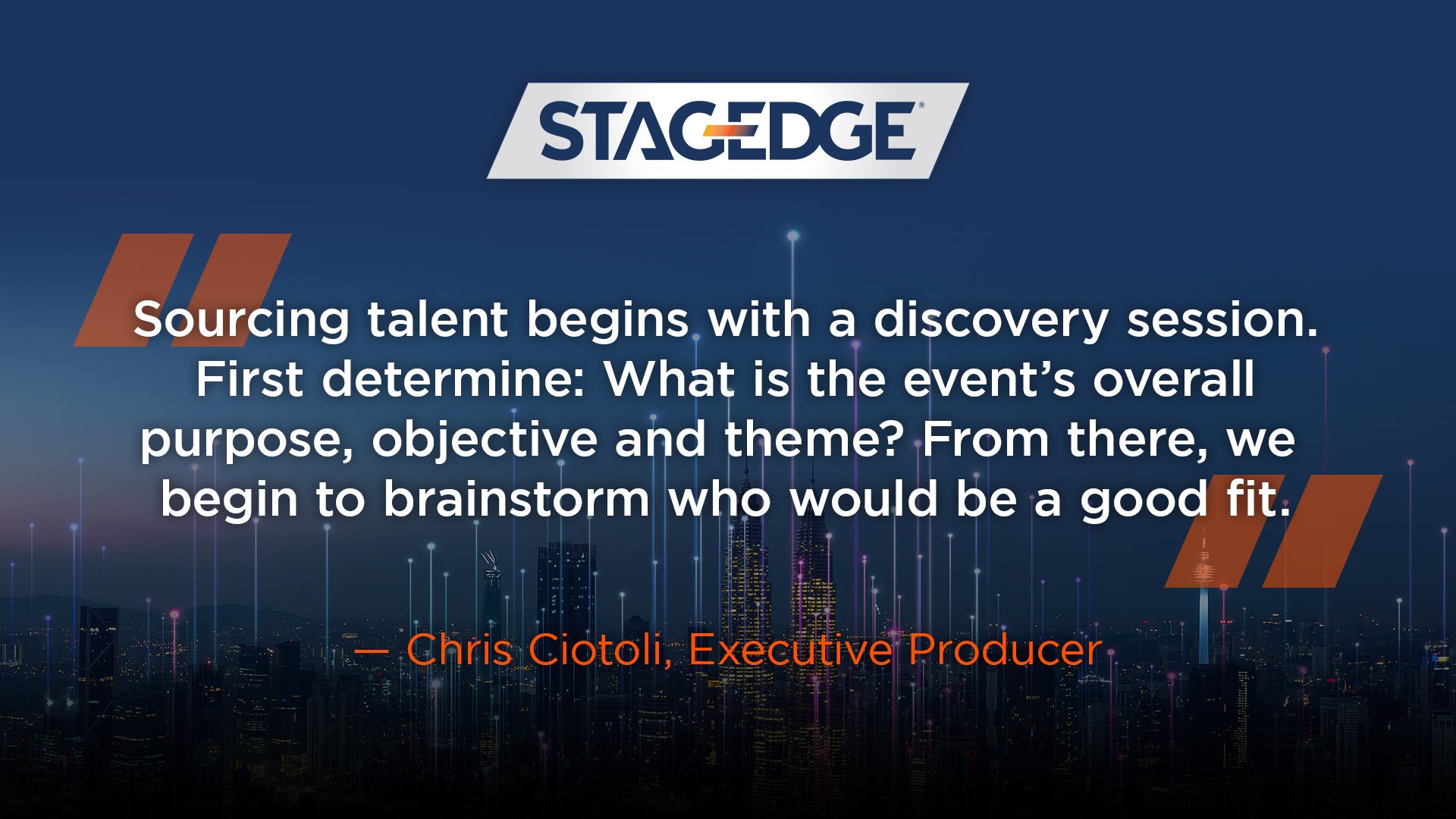Staging an event in 2023 often means hosting attendees “in real life” for the first time in years. While meeting in person brings fresh excitement, organisers face higher audience expectations—making a standout keynote speaker essential.
A keynote should capture your organisation’s ethos—its current focus and future direction. How do you find and prepare a speaker who will have attendees talking for weeks? Start with these fundamentals.
Finding the Talent
The first question is: why put this person on stage? “Sourcing talent begins with a discovery discussion,” says Chris Ciotoli, Senior Producer at Stagedge. “Define the event’s purpose, objective and theme, then brainstorm who fits.”
A noted expert in the audience’s field is ideal. For a healthcare-innovation conference, Dr Sanjay Gupta or Dr Anthony Fauci might resonate. Some celebrities fill seats on name recognition alone—President Barack Obama recently drew 10,000 people to a Boston keynote.
"First define the event’s purpose, objective and theme; from there, identify a speaker who is a good fit."

Developing Keynote Messaging
Even a famous speaker can fall flat without a clear message. “Each attendee asks: Why should I attend? The answer must be obvious,” says Jason Kershner, Senior Producer of Creative Services at Stagedge. “Make the message highly relevant, and give them a hook.”
Before you determine your messaging, you must understand your audience demographic and be clear on their knowledge level. A speaker delivering a highly technical talk to a non-technical group (or vice-versa) will confuse attendees and dilute your message.
"You need to make the message highly relevant to the audience — and give them a hook to want to be there."
After you’ve honed the message, hold an introductory call with the speaker to confirm they understand the event, master the topic and support your goals. Include key stakeholders so everyone stays aligned.
Budgeting Money and Time
Even without a former U.S. president, a well-known keynote can be costly — fees often start around $20 000 and can reach six figures (a recent 1980s rock star earned $300 000). Decide early what share of the budget you’ll devote to the keynote; it quickly narrows your shortlist.
Timing matters: contact top speakers 8–12 months out. Wait until three months before the event and many of the best will already be booked.

Helping Your Speaker Succeed
Don’t expect the speaker to arrive show-ready. “Read the contract carefully so you can handle personal requirements — food, lodging, time on stage,” says Melissa Wolfe, Solutions Engineer at Stagedge. Iron out every detail before signing.
Months ahead, share a creative brief with goals and key messages. Offer branded slide templates, give feedback and provide anything that helps them shine — their success is your success.
Rehearse — then rehearse again. The speaker should commit to the production schedule, including on-stage practice. Include all supporting content in the technical run-through so engineers can cue lighting, audio and video smoothly, and the speaker can get comfortable with the space.
.jpeg?width=800&height=533&name=MicrosoftTeams-image%20(20).jpeg)
Partnering for Success
Working with a production company simplifies speaker selection. Stagedge researches and presents options — bios, headshots, video samples and fees — tailored to your theme. We also vet the contract, preventing last-minute surprises and ensuring a memorable keynote.
Want to learn more? Explore our services at stagedge.com/event-production.
This article also appears in The Stagedge Events Playbook.
Browse more topics or download the full playbook for free.
